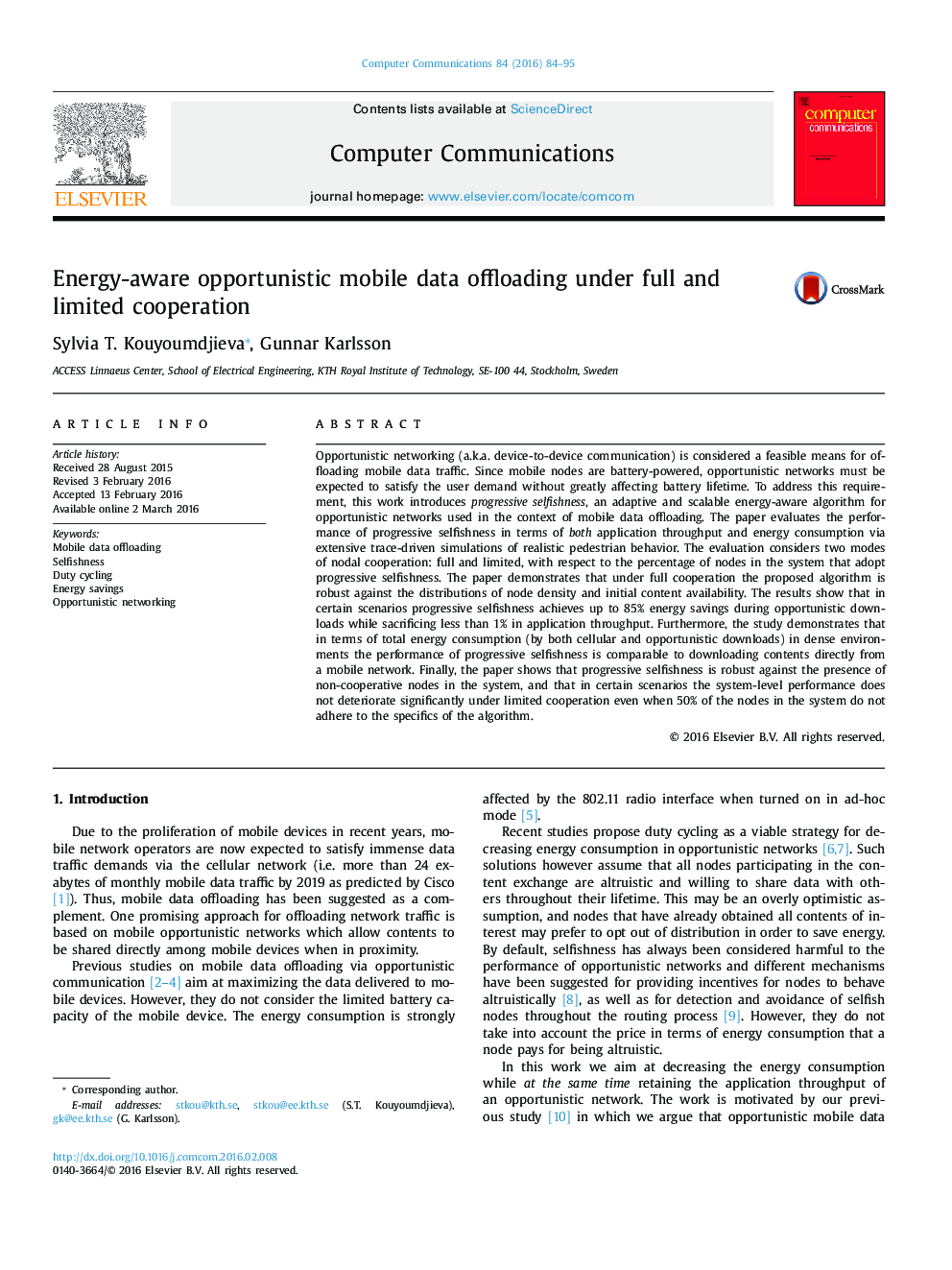| Article ID | Journal | Published Year | Pages | File Type |
|---|---|---|---|---|
| 447559 | Computer Communications | 2016 | 12 Pages |
Opportunistic networking (a.k.a. device-to-device communication) is considered a feasible means for offloading mobile data traffic. Since mobile nodes are battery-powered, opportunistic networks must be expected to satisfy the user demand without greatly affecting battery lifetime. To address this requirement, this work introduces progressive selfishness, an adaptive and scalable energy-aware algorithm for opportunistic networks used in the context of mobile data offloading. The paper evaluates the performance of progressive selfishness in terms of both application throughput and energy consumption via extensive trace-driven simulations of realistic pedestrian behavior. The evaluation considers two modes of nodal cooperation: full and limited, with respect to the percentage of nodes in the system that adopt progressive selfishness. The paper demonstrates that under full cooperation the proposed algorithm is robust against the distributions of node density and initial content availability. The results show that in certain scenarios progressive selfishness achieves up to 85% energy savings during opportunistic downloads while sacrificing less than 1% in application throughput. Furthermore, the study demonstrates that in terms of total energy consumption (by both cellular and opportunistic downloads) in dense environments the performance of progressive selfishness is comparable to downloading contents directly from a mobile network. Finally, the paper shows that progressive selfishness is robust against the presence of non-cooperative nodes in the system, and that in certain scenarios the system-level performance does not deteriorate significantly under limited cooperation even when 50% of the nodes in the system do not adhere to the specifics of the algorithm.
